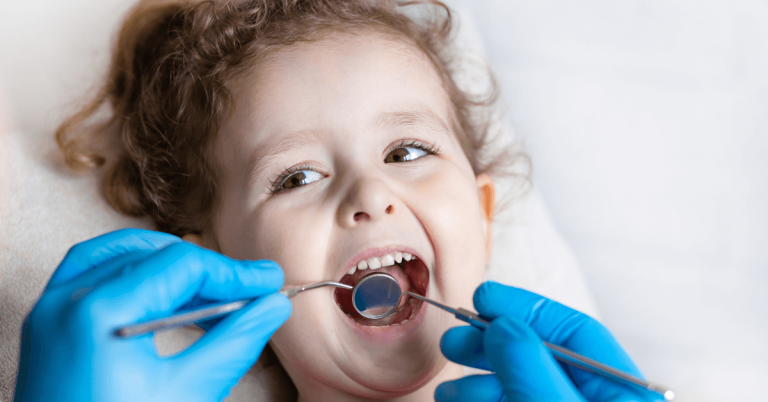Hello! Today we will be going over an important matter for future mothers.
You are all aware that you have to eat well and have a balanced diet for your baby’s growth and development as well as preserve your health during this time. However, how much of the weight gained during pregnancy actually goes to the baby? Should we eat for two during pregnancy? Which nutrients actually support the baby’s growth? What are these nutrients? How to make the baby gain weight during pregnancy? Let’s deep dive!
Where does the weight gained in pregnancy go?
Taking into account that your baby is about 3.5kgs after birth;
- The baby: 3.5 – 4 kg
- Placenta: 0.5-1 kg
- Amniotic Liquid: 1 kg
- Breasts: 0.5 kg
- Uterus: 1 kg
- Increase in maternal blood volume: 1.5 kg
- Fat Storage: 3 kg or more
- Increased muscle tissue and intracellular fluid: 2- 3.5 kg
- Total is around 12.5 kg
Foods That Help the Baby Gain Weight and Support Its Development During Pregnancy
Foods that Benefit the Baby During Pregnancy:
Your baby had already started and completed the fastest development stage before you even realised you were pregnant. The most important developmental pieces, especially cognitive development, have already started. This is why planned pregnancies are important and beneficial. For example, it’s recommended to take folic acid supplements before getting pregnant.
Also, maintaining a healthy diet is crucial for your baby to grow healthily. A woman who is pregnant should take 300 more calories compared to one who is not. So, you don’t have to eat for two during pregnancy. A cup of milk, a fruit, a slice of bread or a meatball would be sufficient for that extra 300 calories.
How you eat determines what your baby eats. Baby feeds from the mother.
Now let’s look at the foods that will help your baby gain weight and especially support their brain development.
Egg
- The egg is the most important protein after breast milk. It is rich in vitamins and minerals and has an important place in pregnancy.
- Egg has lutein, an antioxidant, that plays an important role for a healthy pregnancy.
- Egg has about 25mg of folic acid. Folic acid prevents defects at birth and brain diseases. To ensure the proper development and weight gain of your baby during pregnancy, it is advisable to incorporate a boiled egg into your breakfast.
- If you are unable to consume eggs in boiled form, you may prepare a vegetable omelette with a teaspoon of oil. This way, you will increase your fibre intake and potentially extend your satiety period.
Spinach
- Spinach contains iron, vitamin C, and folic acid, which support the development of your baby’s spine. Additionally, spinach aids the expectant mother in coping with infections.
- Spinach is a natural source of folate. To ensure the proper development and weight gain of your baby during pregnancy, consider incorporating spinach into your diet.
Fruit and Vegetables
- Try to incorporate vegetables and fruits into every meal in your daily diet. During this period, it is crucial to consume foods that are rich in vitamins and minerals and maintain a high-fiber diet.
- Add a generous serving of salad to each of your meals.
- For your snacks, consider consuming a medium-sized banana. Bananas are rich in potassium, which supports the development of your baby’s muscles and skeletal system.
Walnut
- The omega-3 fatty acids found in walnuts support the development of the baby’s eyes and brain.
- A serving of walnuts consists of 2 whole walnuts.
- Regular consumption of walnuts during pregnancy can reduce the risk of inflammation in blood vessels.
- Due to its rich protein and fibre content, walnuts can prolong your satiety, helping you stay full for longer. Walnuts also contain the necessary copper mineral for your baby’s development.
Dairy Products
- Expectant mothers who wish to promote their baby’s growth and ensure adequate weight gain should include dairy and dairy products in their daily diet.
- Dairy and its derivatives are particularly rich in calcium, which is crucial for the developing bones of the baby.
- Alongside your main meals, make sure to incorporate a serving of yoghurt. For your snacks, opt for foods with a high probiotic content, such as kephir, to facilitate digestion. If you cannot consume kephir plain, you can mix it with fresh fruits and blend it for a delicious and nutritious treat.

Pumpkin Seeds
- Iron deficiency is a common issue during pregnancy, and one way to address this problem is by consuming foods high in iron content.
- Pumpkin seeds contain 8.8 mg of iron per 100 grams and are also an excellent source of zinc.
- In your daily diet, you can easily incorporate pumpkin seeds by adding them to your morning oatmeal or blending them into snacks or beverages.
Meat
- As the pregnancy progresses, especially after the 20th week, you should slightly increase protein intake. About 100 grams of meat provides around 20 grams of protein.
- Meat and meat products are rich sources of iron, which supports the development of your baby.
- Fish, on the other hand, promotes both brain development in your baby as well as their eyes. It is recommended to consume fish at least two times a week, but make sure to avoid bottom-dwelling fish. When preparing fish, opt for baking or grilling as a cooking method.
- For weight control, we do not recommend frying.
Other Foods You Should Eat for Your Baby’s Development & Weight Gain in the Womb
- Avocado
- Broccoli
- Lentil
- Nut
- Green Leaf Vegetables
- Kiwi
- Soybean
- Chickpea
- Flaxseeds
- Oats
- Whole grains
Some expectant mothers, fearing weight gain, may consider eliminating bread and rice from their diets during pregnancy. However, it’s important to note that your body still requires the vitamins and minerals that come from these grains during pregnancy. So, completely cutting out bread or rice is not the right approach. What we should be mindful of is opting for whole-grain products. If you prefer not to consume bread with your meal, you can consider having 3-4 tablespoons of rice as a slice of bread is equivalent to 3-4 tablespoons of rice.
If you have any questions, concerns, or would like to share your experiences related to pregnancy and nutrition, please don’t hesitate to leave a comment below. We are here to support you and provide answers to any inquiries you may have.
Your journey through pregnancy is a remarkable one, and we wish you all the best as you embark on this beautiful adventure. Stay well, stay healthy, and take care of yourself and your little one.
Have a healthy day!







